Feb 17, 2018 | networking

At the core of Facebook’s “well-being” problem is that its business is directly coupled with total time spent on its apps. The more hours you pass on the social network, the more ads you see and click, the more money it earns. That puts its plan to make using Facebook healthier at odds with its finances, restricting how far it’s willing to go to protect us from the harms of over use.
Source: How ad-free subscriptions could solve Facebook | TechCrunch
Feb 16, 2018 | algo, trends
 Google, ARM, and Amazon were all in the news this week for their work on custom chips for AI applications. Here’s why we’re only going to see more of them in the future.
Google, ARM, and Amazon were all in the news this week for their work on custom chips for AI applications. Here’s why we’re only going to see more of them in the future.
Source: AI Weekly: Get ready for AI chips everywhere | VentureBeat
Feb 16, 2018 | mobile, networking
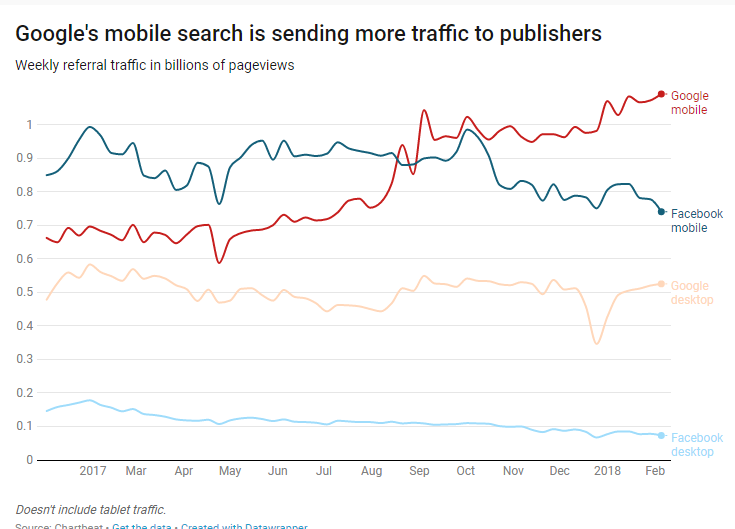
Google’s increased traffic to publishers is replacing the traffic publishers have lost from Facebook, according to new data from Chartbeat.
Source: Google is replacing Facebook’s traffic to publishers – Recode
Feb 16, 2018 | audio

Do you remember the Microsoft Zune? Probably not. The Zune was the Microsoft’s response to the Apple’s iPod. The reason why you don’t remember is because the product sucked. Microsoft executives knew it sucked. Users knew is sucked. Journalists knew it sucked.
Source: The HomePod is the new Zune – Hacker Noon
Feb 16, 2018 | mobile, networking
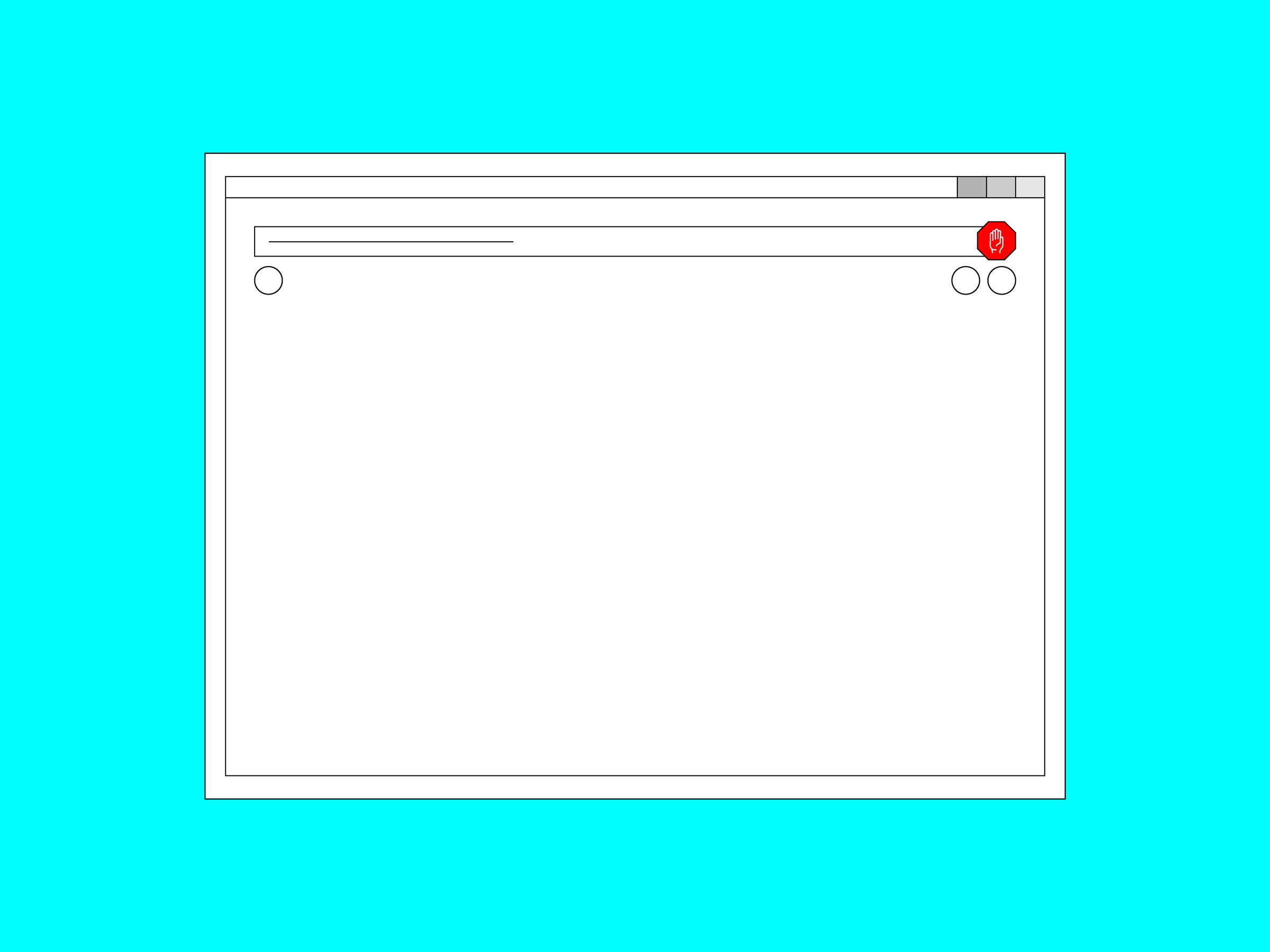
Google started blocking the web’s worst ads in Chrome on Thursday. Here’s what it means for you.
Source: The Google Chrome Ad Blocker Has Already Changed the Web | WIRED
Feb 16, 2018 | mobile, trends

The Embrace smartwatch was designed for epilepsy patients. But its impact could be much broader.
Source: This MIT Startup Is Developing A Fitness Tracker For Your Brain
Feb 14, 2018 | audio, mobile, networking, trends, video
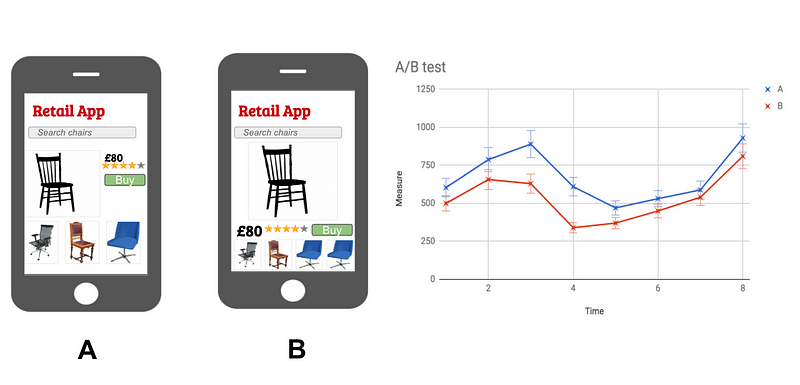 Data science is an exciting, fast-moving field to become involved in. There’s no shortage of demand for talented, analytically-minded individuals. Companies of all sizes are hiring data scientists, and the role provides real value across a wide range of industries and applications.
Data science is an exciting, fast-moving field to become involved in. There’s no shortage of demand for talented, analytically-minded individuals. Companies of all sizes are hiring data scientists, and the role provides real value across a wide range of industries and applications.
Source: Aspiring data scientist? Master these fundamentals.
Feb 14, 2018 | networking
I
It’s been called a fad, a bubble, a waste of money. But influencer marketing will remain immensely popular in 2018, and it’s important to put the discussion of disclosure in the context of just how important the tactic has become—not just for the usual suspects (marketers of fashion, beauty and gaming products) but increasingly for marketers in other categories.
Source: Why Disclosure Is Essential When It Comes to Influencer Marketing – eMarketer
Feb 14, 2018 | mobile, networking, trends
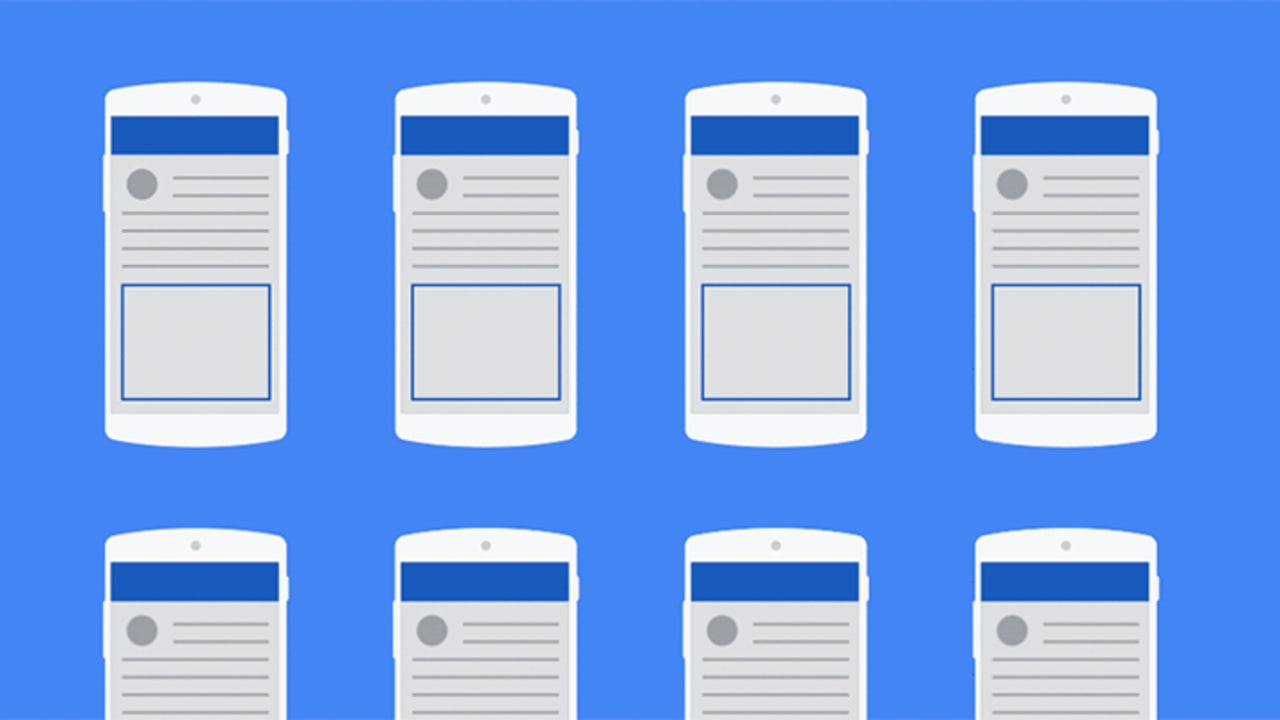
Google is making email a lot more interactive, to save you all those confusing clicks.
Source: Google Thinks The Future Of The Web Is . . . Email
Feb 14, 2018 | algo, audio, mobile

Google spent years building Shazam-style functionality into the Pixel’s operating system. It may be where smartphones are heading.
Source: Neural Networks Are The New Apps
Feb 14, 2018 | games & graphics, video

The esports industry is growing quickly, with new leagues, teams and distribution channels. And this growth is attracting new high-profile esports investment from brands, media organizations and traditional sports rightsholders.
Source: Esports, Jump In or Miss the Mark – AW360
Feb 13, 2018 | networking
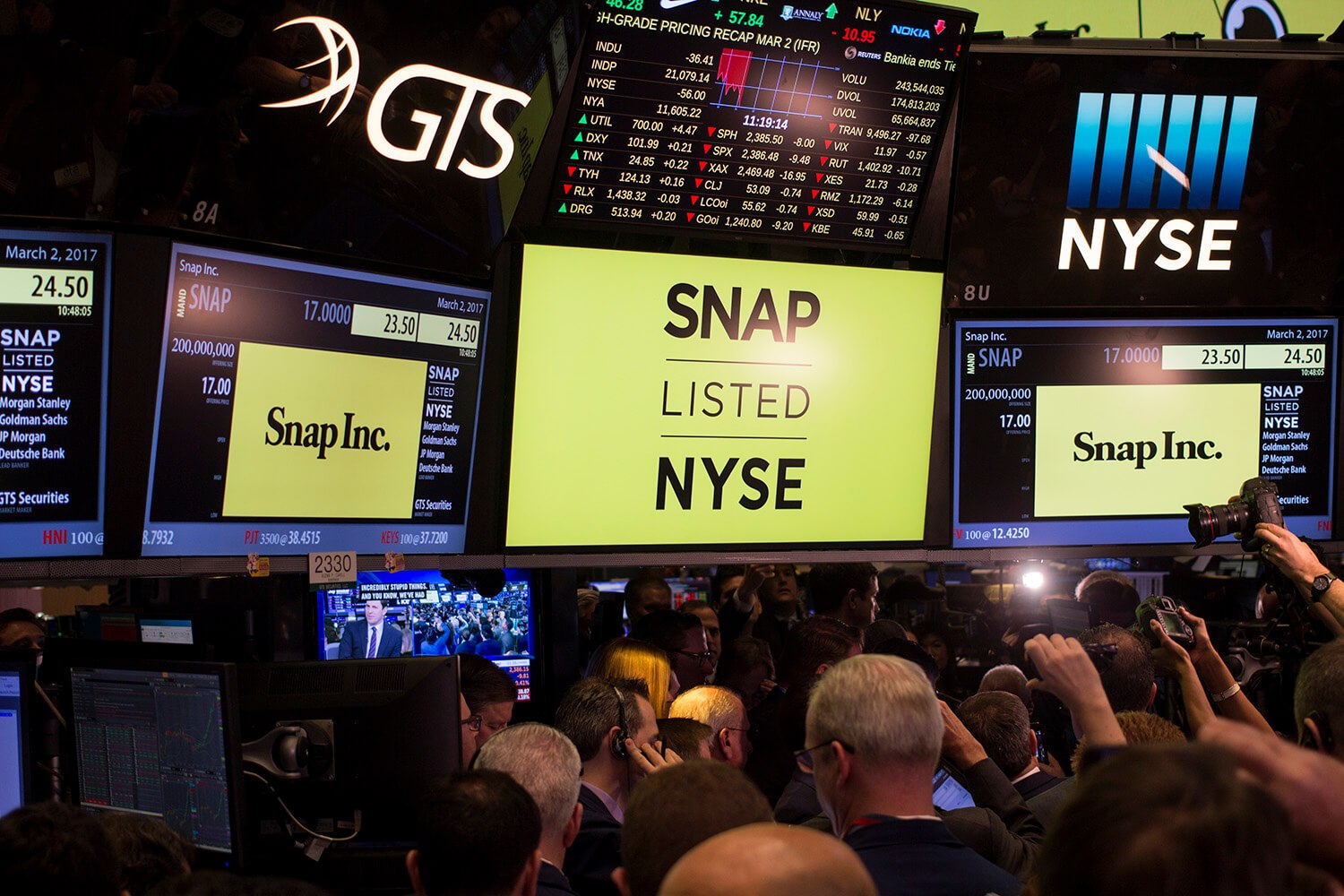
Snapchat first opened its API to a limited number of advertisers back in 2016, enabling third-party technology and creative companies to deliver ads on behalf of brands and agencies. It represented Snapchat’s first moves in the programmatic advertising realm, meaning that ads could be bought and sold automatically, and advertisers could experiment with different kinds of ads through A/B testing to see what works best. Or, for example, a retailer could optimize their ads based on their inventory — if stock runs low on one product, they could automatically switch ads to promote another product.
Source: Snapchat’s Marketing API is now available to all developers | VentureBeat
Feb 13, 2018 | games & graphics, video

Amazon-owned Twitch is now pulling in as many monthly viewers as cable news networks. In January 2018, Twitch had nearly a million people watching at any given point. Twitch primarily features live video streams of people playing video games, but the service has added other types of content recently.
Source: Amazon’s streaming service Twitch reaches as many people as cable news networks – Business Insider
Feb 13, 2018 | audio

Bandcamp marked its 6th straight year as a profitable company in 2017 with revenue and usage on the indie music platform rising by double digits across multiple categories, including the sale of physical goods. Industry wide, physical goods sales fell 20% last year.
Source: Bandcamp Reports ‘Stellar’ 2017, Indie Revenue Up 73% – hypebot
Feb 12, 2018 | algo, audio, mobile, networking, trends, video

The internet of things has never quite found its footing, and some proclaim the once-hyped concept is dead. Even as tech companies like Apple, Amazon, and Google pour money into smart speakers, there’s no real, tangible use for them. Other companies have tried–to little avail–to sell us dumb smart products like smart refrigerators and smart water bottles. And smart homes? They spy on users–and they’re just plain annoying.
For Matt Webb, a technologist at R/GA London, the potential of the internet of things isn’t inside your home. It’s outside of it. “It’s where we can finally start assembling parts to make products or services or companies with a smaller number of people or with greater ambition than before,” he says. “IoT is solving problems in the business space really clearly.”
Source: Is The Internet Of Things Dead, Or Is It Growing Up?
Feb 12, 2018 | networking
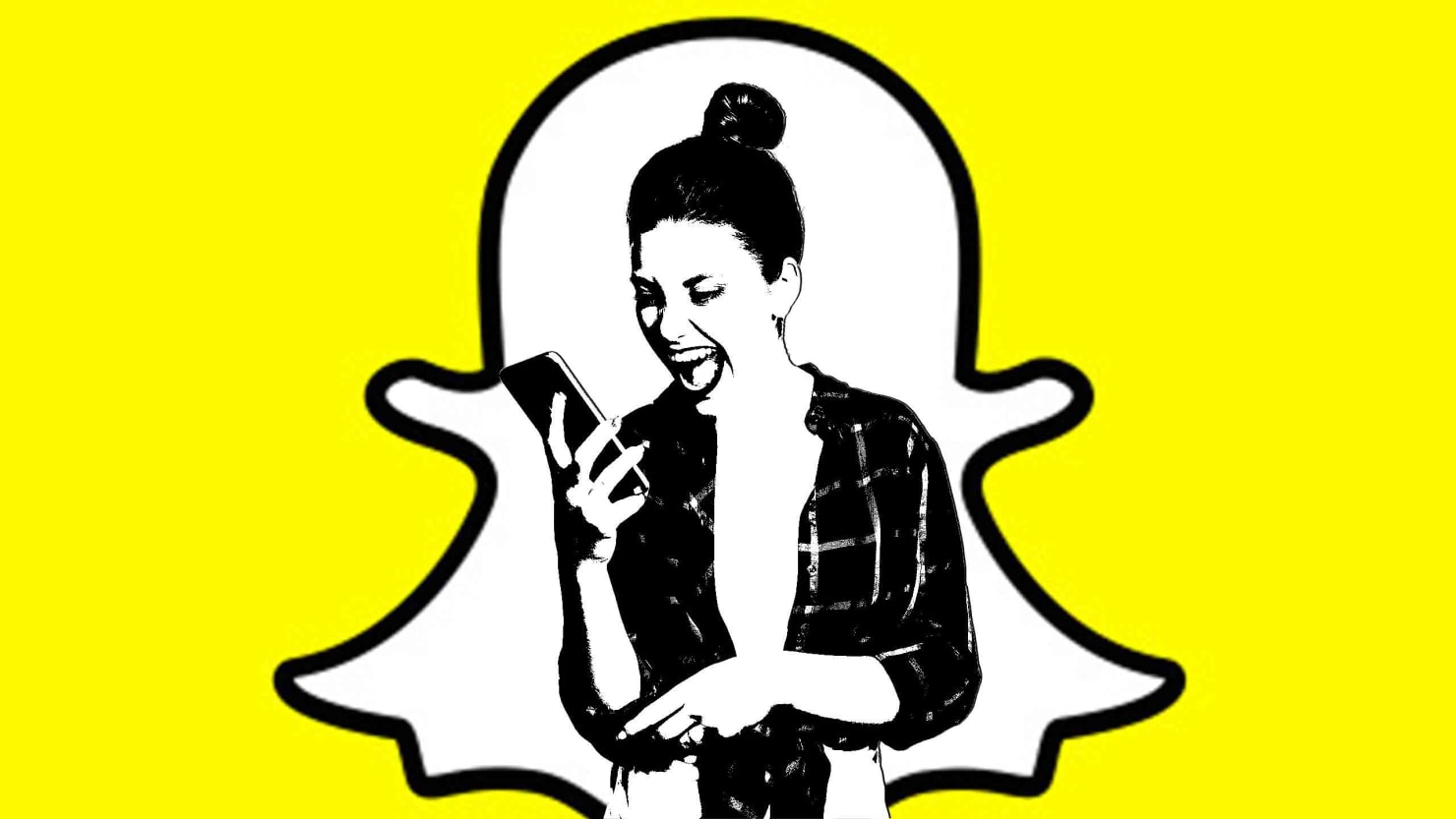
A new update by the tech company has pissed off teens and celebs alike, and may put the fragile company in more trouble.
Source: Snapchat’s New Update Triggers Revolt by Millions of Teens
Feb 12, 2018 | networking

Facebook is losing young users even quicker than expected, according to new estimates by eMarketer. The digital measurement firm predicted last year that Facebook would see a 3.4 percent drop in 12- to 17-year-old users in the U.S. in 2017, the first time it had predicted a drop in usage for any age group on Facebook.
The reality: The number of U.S. Facebook users in the 12- to 17-year-old demographic declined by 9.9 percent in 2017, eMarketer found, or about 1.4 million total users. That’s almost three times the decline expected. There were roughly 12.1 million U.S. Facebook users in the 12- to 17-year-old demographic by the end of the year.
Source: Facebook lost around 2.8 million U.S. users under 25 last year. 2018 won’t be much better. – Recode
Feb 12, 2018 | networking

How a confused, defensive social media giant steered itself into a disaster, and how Mark Zuckerberg is trying to fix it all.
Source: Inside Facebook’s Hellish Two Years—and Mark Zuckerberg’s Struggle to Fix it All | WIRED
Feb 11, 2018 | networking, video

Last month, in its second round of layoffs in as many years, comedy hub Funny or Die reportedly eliminated its entire editorial team following a trend of comedy websites scaling back, shutting down, or restructuring their business model away from original online content.
Hours after CEO Mike Farah delivered the news via an internal memo, Matt Klinman took to Twitter, writing, “Mark Zuckerberg just walked into Funny or Die and laid off all my friends.” It was a strong sentiment for the longtime comedy creator, who started out at UCB and The Onion before launching Pitch, the Funny or Die-incubated joke-writing app, in 2017.
Source: How Facebook Is Killing Comedy – Splitsider
Feb 11, 2018 | networking, video

The series was created and written by Z: The Beginning of Everything writer Kit Steinkellner
Source: Facebook is building out its original TV ambitions with an Elizabeth Olsen series – The Verge

















